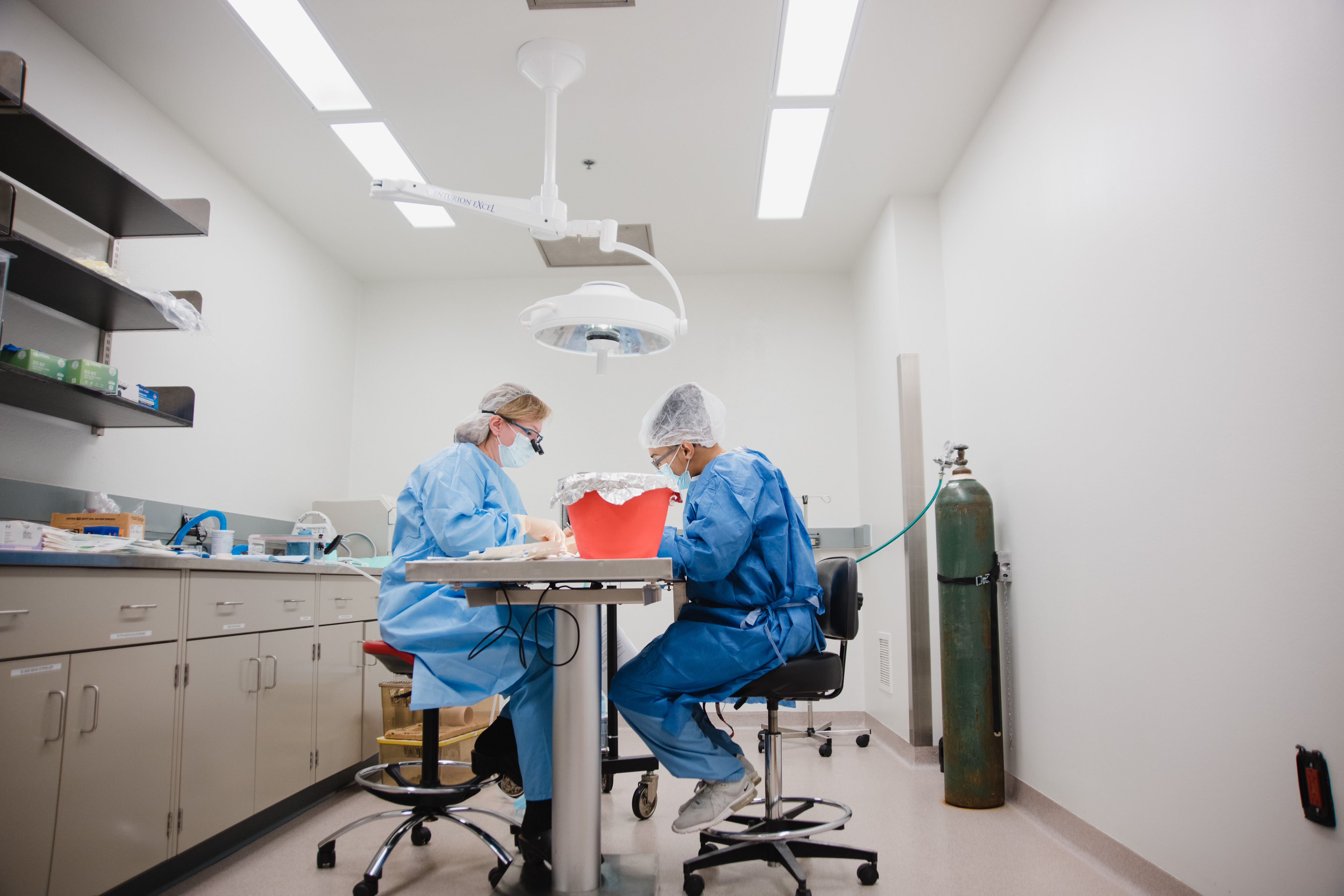On the Cutting-Edge of Research
Our clinicians are researchers, too. Connecticut Children’s pediatric surgeons are advancing the frontiers of surgical care for patients affected by such conditions as esophageal atresia, premature lung disease and tracheal defects. In addition, our team is actively working to prevent the occurrence of traumatic injuries, advocate for children and standardize care across pediatric surgical conditions.

Discover Innovation in Finck's Lab
Connecticut Children’s works closely with the University of Connecticut Health Center in researching clinical treatments of pediatric lung disease. Principal investigator and Surgeon-in-Chief Christine Finck, MD, leads a research lab focusing on pediatric lung disease, specifically hypoplastic or underdeveloped lungs in infants. The goal of the lab is to investigate cell therapy and tissue engineering options for potential clinical treatment. Current research projects include:
- Isolation and reprogramming of human fibroblasts using a excisable reprogramming lentiviral cassette
- Differentiation of human iPSC and Embryonic Stem (ES) cells to distal airway type cells using small molecules and growth factors
- Isolation and characterization of amniotic fluid stem cells from discarded amniocentesis samples
- Reprogramming and differentiation of human amniotic fluid stem cells into distal airway type cells
- Rapid production of decellularized matrix using pressure-based or flow-based perfusion through the vasculature
- Evaluation of protein content following the decellularization process
- Production of a sterile matrix that can be further reseeded and cultured in vitro
- Optimizing the number of cells needed to appropriately reseed a lung scaffold
- Use of patient-specific stem cells to repopulate the airways of lung scaffolds
- Use of patient specific stem cells and endothelial cells to repopulate the vasculature of lung scaffolds
- Implantation of reseeded scaffolds in vivo to assess feasibility and physiologic function
Leading a Multi-phase, Multi-Institutional Study
We are proud members of the Eastern Pediatric Surgery Network (EPSN), a group of pediatric surgeons dedicated to establishing best practices and improving outcomes for children who need surgery. Connecticut Children’s is leading a multi-phase, multi-institutional study aimed to better understand current practice and disease in esophageal atresia surveillance while ultimately developing evidence-based practice guidelines to steer future practice. Two current studies we are leading for EPSN include:
- Long gap EA study: Current options for surgical repair include delayed primary repair, the Foker procedure and other traction techniques, and esophageal replacement. This EPSN study is a retrospective and prospective data registry aimed at describing patient characteristics, management strategies and outcomes after surgical repair of long-gap esophageal atresia.
- Esophageal atresia surveillance: Esophageal atresia is a congenital anomaly that affects one in 3,500 live births and is often associated with an increased cancer risk. Therefore, early screening interventions are necessary to identify, treat and prevent disease.
At the forefront of addressing injury prevention and optimizing quality-care
Research led by Brendan Campbell, MD, MPH, in collaboration with other specialists and researchers from Connecticut Children’s Injury Prevention Center and Level 1 Pediatric Trauma Center, includes the following topics:
- Connecticut injury surveillance system
- Identifying risk factors for ATV injury among children: A multi-state study
- Can nurse education in the post-partum period reduce car seat misuse among newborns?
- The Mature Driver Safety Study: A randomized controlled trial to determine the efficacy of a community-based screening and referral initiative using AAA’s Roadwise Review
- Increasing alcohol screening and brief intervention for pediatric trauma patients
- Correlation of drunk driving among college students
- Drowning deaths in Connecticut: Epidemiology and prevention
- Cell phone use while driving among hospital employees
- Fall prevention knowledge, attitude, and practice among municipal health department and senior center directors
- Characteristics, motivations, and retention levels of lay coaches for a fall prevention program for older adults
- Referring emergency department patients and visitors to a community based mature driver safety program
- Investigating pediatrician beliefs and practices in youth suicide prevention
- Connecticut’s gun buyback program: Are we hitting our mark?